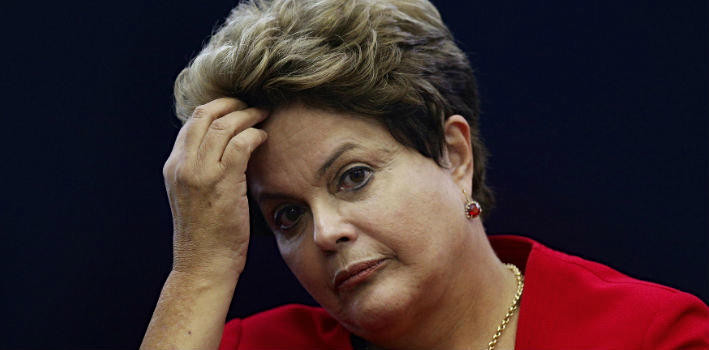
Corruption is a regular effect of interventionism.
~ Ludwig von Mises.
As dozens of senior Brazilian politicians face scrutiny over what could be the biggest corruption scandal in the history of the country, President Dilma Rousseff used her International Women’s Day message on national television to talk about the country’s need for “moral and ethical strengthening.”
As the former chairman of Petrobras, Rousseff could be at the very center of the corruption scandal involving 54 other senior politicians.
According to federal investigators, officials likely accepted bribes from major construction and engineering firms wanting to rake in big money from inflated deals with the government-owned Petrobras. If the accusations hold true, Rousseff’s Workers’ Party may have pocketed some of that cash.
But Rousseff is not the only major player attached to the scandal. Investigators are looking into the involvement of at least 21 federal deputies and 12 senators.
Some fear that, in spite of the president’s past role, her current position gives her immunity. According to the nation’s attorney general, his hands are tied by the Brazilian Constitution. Only Congress can open a probe into President Rousseff’s role in the scheme. But how could Congress open an investigation that would implicate some of its own?
Corruption Runs Deep…
The history of Brazil is a history of corruption.
To many local sociologists, the country’s corruption problem has something to do with the people’s genetic disposition. But anyone with a basic understanding of economics knows that genetics has nothing to do with it.
Likewise, Brazilian talking heads often disguise their failure to grasp the concept of corruption. They frequently parrot points made by politicians and hold the words of famous sociologists — a profession eerily adored by the Brazilian electorate — as the ultimate truth.
As both groups tend to focus on corruption, one of the many consequences of interventionism, they fail to identify the real problem. Because they lack basic knowledge on what prompts corruption, their analysis is usually baseless. But as their assessment is parroted into perpetuity, the system that enables corruption is empowered.
While thousands of Brazilians take to the streets to protest the president’s handling of the economy, as well as her alleged involvement with the Petrobras corruption scandal, the government puts on a show. Officials want to tell the public that they are taking responsibility. But for what exactly? Admitting that they themselves are corrupt? That’s far from a secret.
If people knew what to look for, they would not be protesting corruption. If they understood that corruption is the consequence of a government accustomed to having public opinion on its side, they would be protesting the government itself.
Investigations Won’t Lead to Justice
If a federal judge decides to approve the probe into the 54 officials, senior politicians may face charges of corruption, money laundering, and formation of a criminal organization. Whether Congress decides to investigate the president or not, though, big-government proponents will win.
Regardless of what happens as a result of this scandal, those seeking power are set to use their base to rally for more government overreach to resolve the country’s problems. In the end, the only ones paying for government officials’ crimes will be the people.
If we take what Austrian economist Ludwig von Mises said about corruption seriously, we may understand that members of regulatory bodies are corrupt because of their blind confidence in the infallibility of the state.
Those who have a blind confidence in government carry on with the tradition while fostering an environment where corruption is not only invited, but also catered to. In an environment where people continue to yield power to the state in spite of the evidence, the real scandal behind the corruption charges is lost on most people.
Brazilians are currently under the magnifying glass. Will they finally identify the roots of their government’s evils? And if so, will they finally fight the right fight against government overreach? Time will tell.
Edited by Fergus Hodgson.
 Versión Español
Versión Español













